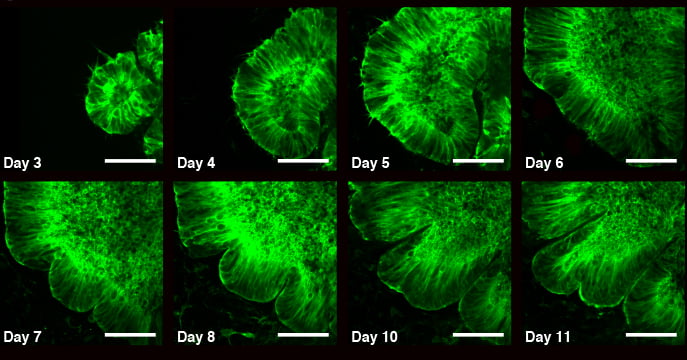This article was first published by The Times of Israel and is re-posted with permission.
An Israeli research team has discovered a way to grow a miniature version of the human brain that undergoes wrinkling in a similar way to a real brain, paving the way for scientists to better understand a congenital defect.
Roughly one in 30,000 babies are born with smooth brains. They go on to suffer from severe developmental difficulties and a relatively low life expectancy.
Scientists from the Weizmann Institute of Science in the central Israeli city of Rehovot sought to understand more about the physical and biological factors that cause the brain to wrinkle, but with existing methods for growing in vitro brains, it was very hard to monitor development.
That led the Institute’s Dr. Eyal Karzbrun to develop a new approach to growing organoids — simplified, miniature versions of bodily organs produced in test tubes.
In order to allow for high-quality optical imaging and microscope tracking of wrinkle development, Karzbrun managed to use embryonic stem cells to grow a “mini-brain” that was round and flat with a thin space in the middle.
SEE ALSO: Paralyzed Rats Can Walk Again After Israeli Scientists Inject Human Stem Cells
By the second week of the tiny organoid’s growth and development, the team was able to observe wrinkles beginning to appear and then to deepen. Karzbrun said, “This is the first time that folding has been observed in organoids, apparently due to the architecture of our system,” he said.
To read the full article, click here
Related posts

Editors’ & Readers’ Choice: 10 Favorite NoCamels Articles

Forward Facing: What Does The Future Hold For Israeli High-Tech?

Impact Innovation: Israeli Startups That Could Shape Our Future




Facebook comments